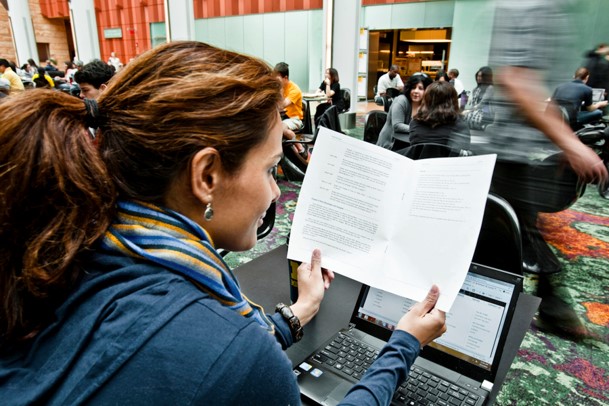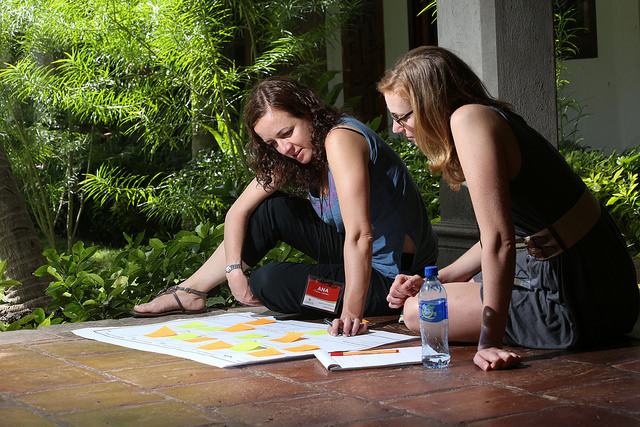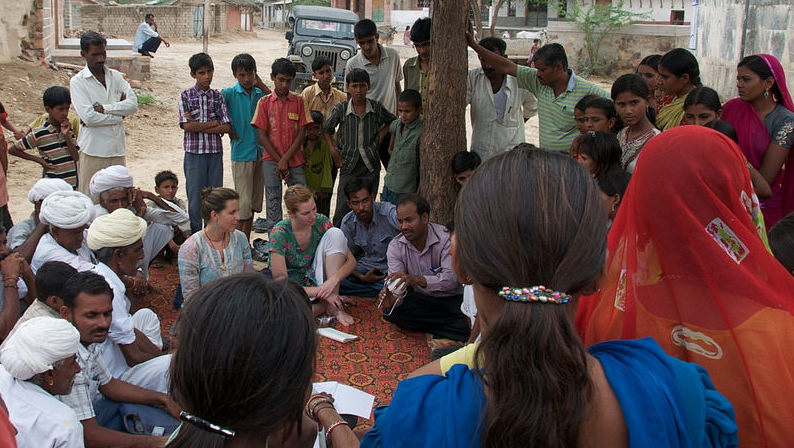WDI’s Senior Director of Healthcare Delivery, Ioan Cleaton-Jones, is an independent director on the board of Shifa International Hospitals (Shifa), which is publicly listed on the Pakistan Stock Exchange. He was nominated to the board by the International Finance Corporation, which owns 12% of Shifa. Shifa’s flagship operation is the 550-bed Shifa International Hospital, an advanced teaching hospital treating complex medical conditions, located in Islamabad. This hospital is one of only four in Pakistan that are quality accredited by Joint Commission International (JCI), the international arm of the US Joint Commission which does quality assurance in US hospitals. It also serves as the teaching hospital for the private, nonprofit Shifa Tameer-e-Millat University, which has colleges of medicine, nursing, pharmacy, dentistry, medical technology and other healthcare-related disciplines. Additionally, Shifa has a second hospital in the city of Faisalabad, with another under construction in the same city. It also has outpatient medical centers, medical labs and pharmacies.
This primer provides a comprehensive but non-technical overview of the distinct health information systems (HIS) that all together support health care delivery in low-resource settings. It opens with a historical account and landscape assessment and describes the urgent need to build a lean rigorous HIS that integrates these different components. Subsequent sections describe the individual systems that: i) track individual patient and health care provider information; ii) directly document care delivery; iii) provide public and population health data; iv) support facilities’ and community health workers’ administrative and financial functions; and v) coordinate logistics and health commodities supply chains. A separate section describes imported data, including “master data” and manufactured (e.g., “meta”) data. The primer closes with recommendations for principled HIS stewardship.

WDI Publishing is organizing a new competition for case studies focusing on the unique advantages and challenges of doing business in the Middle East and North Africa (MENA) region.
Submissions for the competition, “Doing Business in the Middle East, North Africa Region,” should focus on a business dilemma of an organization or company located or doing business in the MENA region. The cases may feature a small or large organization, private sector multinational, non-governmental organization (NGO) or nonprofit.
The global competition is open to individual students or student teams, as long as they enter in collaboration with a faculty member from a degree-granting university or college. Faculty or faculty teams may also enter as long as they are currently teaching at a degree-granting university or college. Other individuals may also enter, provided they do so in collaboration with a faculty member from a degree-granting university or college.
The winning entry will be awarded $5,000. Second place will earn $3,500 and third place $1,500. Additionally, all three winning cases will be published by WDI Publishing and added to its case catalogue. Entry forms are due Dec. 12, 2019, and the final case and teaching note must be turned in by Feb. 9, 2020. Winners will be announced on March 20, 2020.

To learn more about key deadlines, entry requirements, judging criteria and to access entry forms and submission documents, click here. For resources on how to write a case study and a teaching note, along with other helpful information, click here.
WDI Publishing has assembled an impressive panel of judges for the competition. They are:
Kim Bettcher – Center for International Private Enterprise (CIPE)
Andrew J. Hoffman – University of Michigan Ross School of Business
Manel Khadraoui – University of Tunis/Tunis Business School
Hagop Panossian – American University of Beirut Olayan School of Business
WDI Publishing Manager Sandy Draheim said she hopes the competition will encourage the development of new, academic case studies about the MENA region, increase the understanding of doing business there and grow the critical thinking skills of university students in these countries through the use of these new MENA-focused cases.
“There are many regions of the world that could use more ‘localized’ business case studies for higher education,” Draheim said. “But, partly based on the incredible response, interest and results of WDI’s M²GATE program, we thought it would be interesting to target our first geographically-themed case competition around MENA issues. We want to elevate the quality and quantity of teaching materials that provide students – both in the MENA region and around the world – with opportunities to take on the roles and responsibilities of managers in organizations located or doing business in this region.”
WDI’s Healthcare team collaborated with the International Federation of Pharmacists (FIP), Hospital Pharmacy Section and associated pharmacy faculty (including Dr. James Stevenson at the University of Michigan) with the objective of advancing implementation of best practices in hospital pharmacy. This project grew out of an initial collaboration, including funding and assignment of a University of Michigan graduate student pursuing a doctor of pharmacy degree to conduct a baseline assessment in Namibia during June-July 2018. This project focused on leveraging the findings from the Namibia assessment, as well as a Pakistan assessment in order to advance the diagnostic results into capacity building intervention and funding development for the two countries.
A case study by a Rutgers Business School professor about a start-up enterprise in Pakistan and its quest to be self-sustaining after 12 months has won first place in the WDI 25th Anniversary Case Competition.
“Roshni Rides: Pricing Transportation for the Underserved,” by Can Uslay examined how the enterprise, which provides affordable, dignified transportation to refugees and was awarded the $1 million Hult Prize in 2017, dealt with many challenges as it prepared to launch. For the case, Uslay followed the Roshni Rides team as it tried to find a price point that made it affordable to its customers while also generating enough money to make future expansion possible.
“Roshni Rides wants to restore the dignity of refugees by providing accessible, affordable, and reliable transportation, one ride at a time,” Uslay said. “For me, it was great to be able to create a case study to convey their powerful story which will resonate with more people as a result of this win.”
The case competition celebrated and commemorated WDI’s 25th anniversary in 2017 and its long history of developing market-based solutions in low- and middle-income countries around the world. It was open to students and faculty individually or on teams, and had to describe a dilemma or challenge faced by a company or organization related to creating, implementing, evaluating and/or disseminating market-based solutions in developing countries.
“By rolling out this competition globally, we not only invited case study submissions focused on WDI’s mission, but also created awareness of WDI and its 25-year history, ” said Sandy Draheim, manager of WDI’s case publishing and marketing. “Entrants included faculty and/or students from 10 countries representing over 40 different universities.”
The first round of judging was completed by an internal WDI team. However, the final winners were determined by an esteemed group of academic professionals which included Kim Bettcher, director of knowledge management at the Center for International Private Enterprise, and John Branch, Gautam Kaul, and Jordan Siegel, all professors at the University of Michigan’s Ross School of Business.
The second-place winners were Fernando Roxas and Andrea Santiago from the Asian Institute of Management in the Philippines. The pair wrote, “Milking the Future: DVF Dairy Farm Partners with the Filipino Farmer,” that explored whether Filipino farmers would be able to produce sufficient quantity and quality of carabao (water buffalo) milk to satisfy the demands of the DVF Dairy Farm customers.
In third place was “Chanderiyaan: Weaving Digital Empowerment into the Indian Handloom Industry,” by three professors from the FORE School of Management in India. The case, written by Bishakha Majumdar, Sriparna Basu and Shilpi Jain, studied a successful 15-year-old handloom enterprise as its founder considered making it an independent, self-sustaining social enterprise.
Uslay was awarded $3,500 for his first place win and donated the winnings to the “noble mission” of Roshni Rides, he said. The second place team won $2,500 and third place was awarded $1,000. Additionally, each winning case was professionally published by WDI Publishing.
Uslay knew about Roshni Rides because one of his students was the organization’s chief marketing officer. Uslay attended the local stage of the Hult Prize competition at Rutgers in 2016 when Roshni Rides won the award. He said he was proud to watch the team prepare for the Hult Prize competition, raise money to pilot their project and then win the global finals.
“They have a very moving story,” Uslay said. “Besides the pedagogical value of learning to deal with the real-life problems they are facing, I thought it would be inspirational for students who study this case to see that they too can create something that leads to a grand prize of $1 million and meet former President Bill Clinton at the U.N. in the process. In fact, Rutgers Business School has two teams in the global finals this year so I know I am right about the positive spillover effect of their story.”
Uslay said his case is unique in that it combines essential marketing planning issues with lean startup thinking. It also demonstrates what to do when you have key metrics and formulas but are unsure how to apply them in situations with imperfect information and high uncertainty. For Roshni Rides, Uslay said they could do a SWOT analysis, create a business model canvas and develop a five-year projection but they were doing a start-up in an environment where all the parameters were changing.
He said for his case, classroom discussions can be conducted at a high level or push deep into the details.
“It is a case that begs to be discussed both qualitatively and quantitatively,” Uslay said. “But at the end of the day it is a case of entrepreneurial marketing. How can we serve the underserved? Can we serve them well but profitably? Spoiler alert: yes.”
Photos courtesy of Roshni Rides.

By Amy Gillett
Note: This blog post also appeared on NextBillion.net, which is managed by the William Davidson Institute at the University of Michigan.
I recently had the opportunity to spend time with author and professor Elmira Bayrasli. I was truly inspired after reading her book “From the Other Side of the World: Extraordinary Entrepreneurs, Unlikely Places,” and recently invited her to speak to students and faculty at the University of Michigan.
In her book, Bayrasli looks at the emergence of entrepreneurship in seven developing countries — including India, Nigeria, Mexico, and Russia — by detailing the journeys of local entrepreneurs and the obstacles they had to overcome to build high-growth businesses. These obstacles included poor infrastructure, corruption and a culture of bribery, and a lack of public spaces where business-minded folks could congregate, converse and have the kinds of chance meetings that often spark innovation.
My interest in this topic stems from working on entrepreneurship development over the past dozen years at the William Davidson Institute. (Note: WDI is the parent organization of NextBillion). I’ve overseen programs training women to scale up businesses in Rwanda as part of the Goldman Sachs 10,000 Women project, bringing new entrepreneurship pedagogy and curricula to universities in Papua New Guinea, and running a social entrepreneurship virtual program that brings U.S. students together with counterparts in the Middle East to come up with entrepreneurial solutions to pressing problems.
I was interested to hear Bayrasli’s perspective on why entrepreneurship is exploding in developing economies. She credits the combination of technology and globalization. Both forces help entrepreneurs make new connections – which are key for raising capital, coming up with fresh ideas and generating new business models. One of the successful entrepreneurs she highlights in her book, Monis Rahman, created Pakistan’s first matchmaking website and its most successful job search website, having tapped LinkedIn founder Reid Hoffman for advice, as well as other contacts he developed while studying at Stanford and working in Silicon Valley. The title of that chapter, “Steve Jobs Lives in Pakistan,” sums it up well.
Another factor Elmira mentioned is the trend of many entrepreneurial young people seeking to return to their home countries after completing a Western education. She contrasted this with her experience in Turkey, where her parents emigrated from before settling in the U.S. In the past, ambitious Turks dreamed of moving to the United States. Now they see opportunity in their home country and feel pride about being from there. They see homegrown successes – such as Mavi Jeans and AirTies, a wireless network company Bayrasli also profiles in her book – and they want to return and create businesses too. Not only do these successful companies provide inspiration, they’ve also helped transform the way Turkish business operates, setting new standards based on global best practice and leaving the old, corrupt practices behind.
I found Bayrasli’s perspectives on global entrepreneurship fascinating. An area where our thinking diverges, however, is on the role of education and the question of whether entrepreneurship can be taught. Bayrasli contends that aspiring entrepreneurs are best served by studying the classics – she recommends reading Tolstoy for instance – to understand human motivation and gain empathy. She doesn’t believe entrepreneurship is best taught in business schools. While I appreciate Tolstoy just as much as the next Russian literature major, I have come to see the value of teaching business skills – from negotiating to marketing to basic finance – to those who at least have a fledgling business and are looking for guidance on how to grow it to the next level. While Steve Jobs, Bill Gates, and Mark Zuckerberg were all college dropouts and never returned to school for a certificate in entrepreneurship, I see them as outliers in the world of entrepreneurship – exceptionally gifted, surrounded by savvy businesspeople, and lucky in their timing.
I hope you enjoy my interview with Bayrasli, available below.
Amy Gillett is vice president of the Education Initiative at the William Davidson Institute at the University of Michigan.

Mary Fritz, pictured right, in Nicaragua for Agora Partnerships.
When Mary Fritz thinks back to her 2012 WDI summer internship in India, she remembers the oppressive heat, the bugs, her illnesses, her inability to communicate, a lack of cultural context, being the constant object of fascination of the locals and taking a shower by pouring water over her head. In short, Fritz said, she was “missing my U.S. life.”
So it might be surprising that Fritz, who has since built a young career helping launch startups in Latin America, fondly refers to this time as an “amazing, multifaceted experience that really shaped me on a lot of levels.” She said her summer in India made her stronger and more independent, flexible, and patient.
“India is extraordinarily beautiful and diverse, and farther removed from Western culture than I had ever been before,” Fritz said. “I learned to be constantly (both) physically and emotionally, uncomfortable. I learned how to be alone. I learned to take bucket showers. I learned a little bit of Hindi.”
Along with the life lessons were plenty of business lessons as well.
“I learned the importance of including the customer in every strategic decision,” she said. “I learned humility. I learned how to connect with people without shared language. And I learned that sometimes you just can’t.”
At the University of Michigan, Fritz enrolled at the Erb Institute, a dual degree MBA/MS program with the Ross School of Business and the School of Natural Resources and Environment. She said she chose U-M for her graduate studies because of the university’s commitment to impact. She also was familiar with WDI’s support of student programs before arriving on campus.
“I’ve always been really interested in social enterprise as a way to address social, economic, and justice issues,” Fritz said. “I wanted to learn what really goes into building an impact company from the ground up, and WDI gave me that opportunity.”
Fritz worked with the social enterprise Wello, which makes water transportation products, including the WaterWheel, designed to help mostly low-income women collect and carry water long distances. Founded in rural India by Cynthia Koenig, a former WDI summer intern as well, Wello has now expanded to Pakistan, Malawi, Zambia, Bangladesh, and Haiti.

Mary Fritz, wearing a green shirt and white pants, speaks with potential Wello customers. She is seated next to Cynthia Koenig (pictured left), CEO of Wello.
Fritz was based in Mumbai, with frequent travel around the Indian states of Rajasthan and Gujarat. Because Wello was a fledgling startup with a small staff, Fritz worked on a bit of everything. But her main focus was how to get the product to the people who needed it at a price they could afford. There were a lot of manufacturing details to work out, as well as market research and customer interviews to conduct, pricing models to build, and distribution channels to develop. She also studied how to measure impact.
After graduation, Fritz took those valuable lessons and work experiences and began building and launching startup organizations focused mostly on Latin America for Agora Partnerships, a business accelerator. She recently moved to Seattle to work for Lenati, a marketing and sales strategy consulting firm. She will continue to work with startups and nonprofits as well as corporate clients.
“My experience with Wello has definitely influenced my career choices,” Fritz said. “From a functional standpoint, I became really interested in everything that’s involved in bringing a product to market. And I loved working in a startup; every day is different.”
And more than four years removed from that summer in India, Fritz said she still harkens back to those days when faced with a current-day challenge.
“Wello was my first, and definitely most intense, experience conducting customer research and trying to create a human-centered approach to a go-to-market strategy,” she said. “I use those lessons all the time.”
And despite the hardships of that sometimes uncomfortable summer in a faraway land, the internship nevertheless stoked a yearning to work internationally.
“From a personal standpoint,” Fritz said, “it definitely increased my desire to travel and experience cultures beyond my own.”
Note: This is one in an ongoing series of articles profiling past WDI interns and Multidisciplinary Action Project (MAP) team members and their career paths. Additional profiles in the series may be found here.
The goal of the project was to evaluate markets and look for ways to foster public-private partnerships with Base of the Pyramid (BoP) enterprises. Another goal was to develop a blueprint for a new asset class of private equity funds considering BoP enterprises and investments in Bangladesh, Vietnam, India, Indonesia, Pakistan and the Philippines.